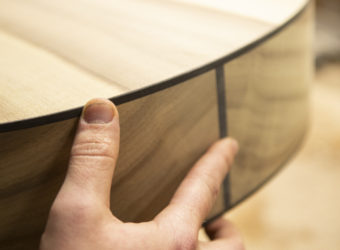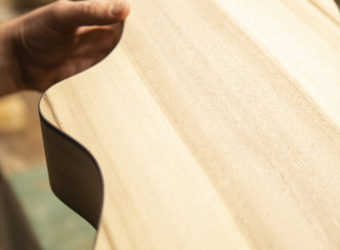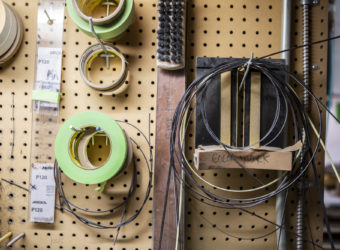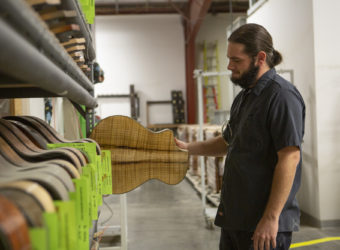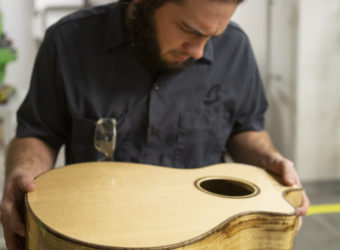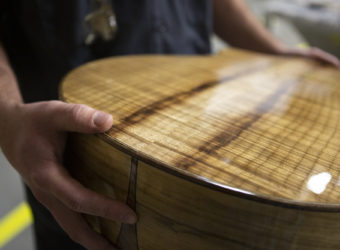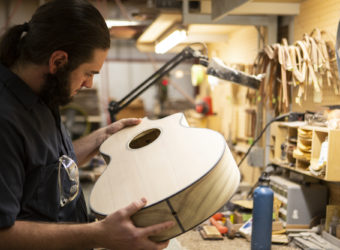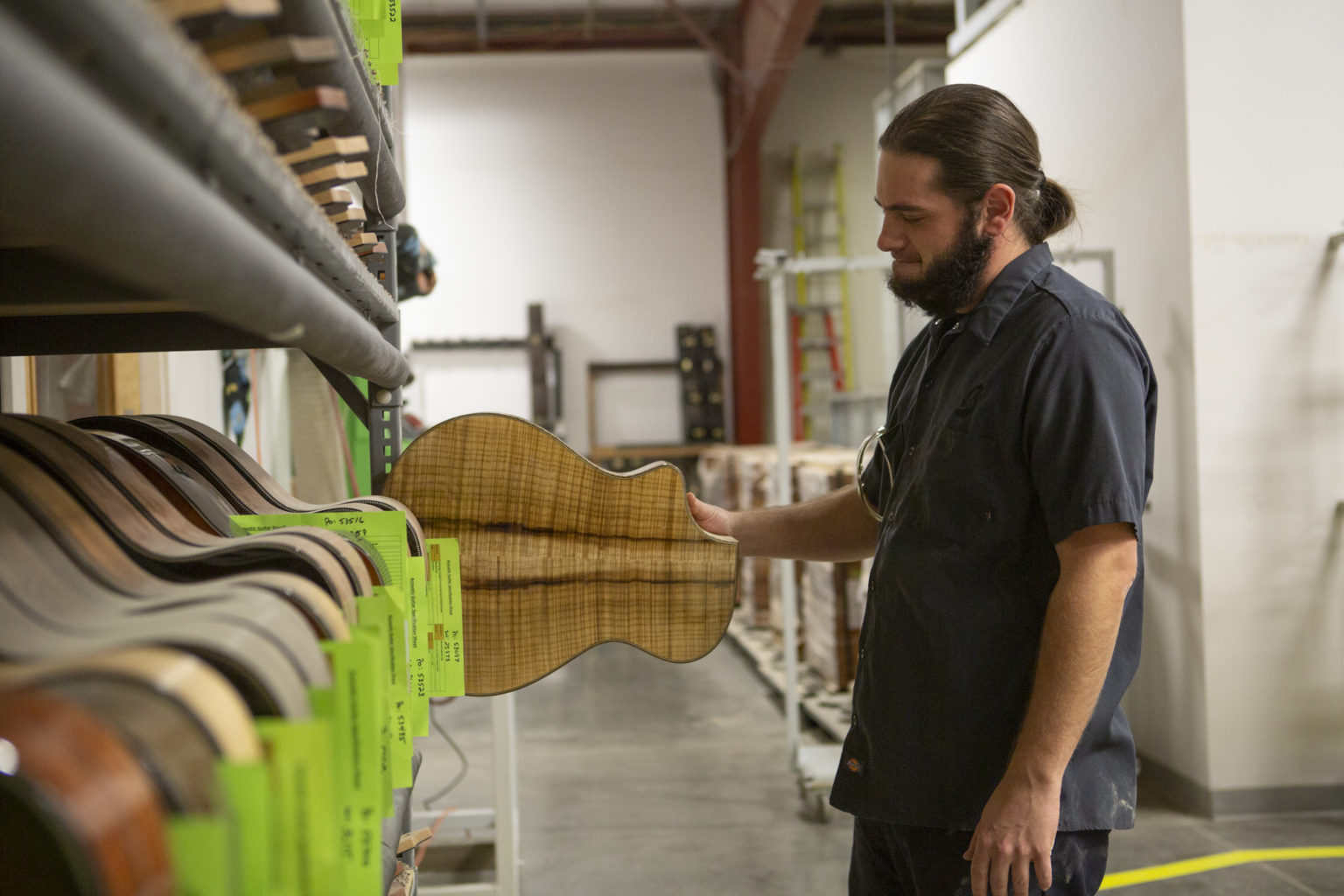
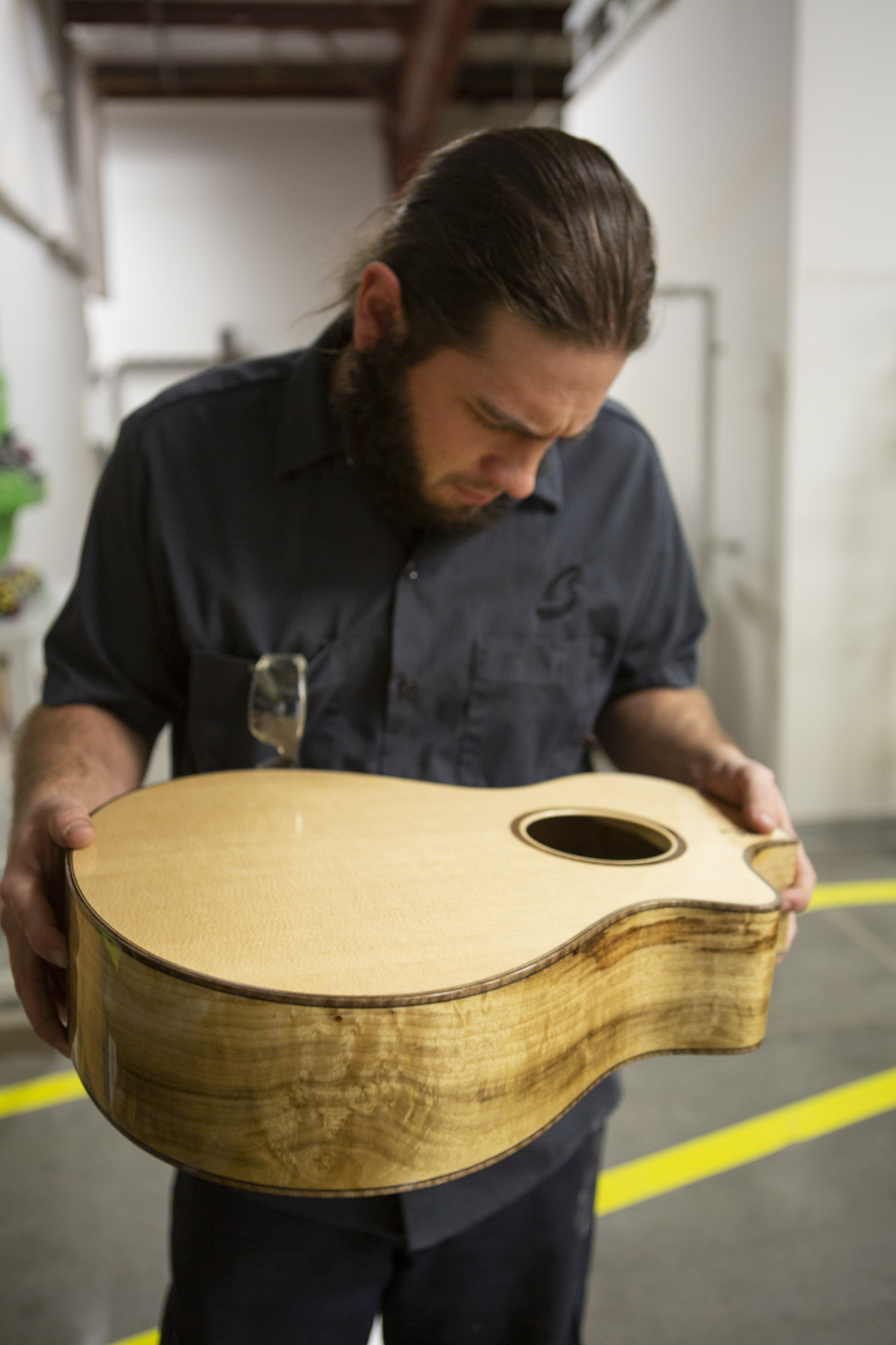 Meet Two Old Hippies Production Manager Erik Has-Ellison
Meet Two Old Hippies Production Manager Erik Has-Ellison
(This article is also featured in Breedlove’s Winter Magazine).
When your father plays a 1940s Gretsch Synchromatic that he inherited from his grandfather, it’s pretty much a given that you’ll be playing it, too.
Sure enough, Erik Has-Ellison’s first chords were strummed on the Synchro, a sweet maple-backed archtop made sweeter by a deep family history.
By night, Has-Ellison is a songwriter, pulling together lines from “a few notebooks full of stuff,” ideas and details scratched down while hiking, cycling or waking from a vivid dream. By day, he is production manager for Two Old Hippies, overseeing all Made in Bend Breedlove and Bedell guitars and Weber mandolins.
One passion feeds another, and Has-Ellison remembers the curve of that vintage Gretsch as he watches a Brazilian rosewood side, destined for a Bedell Bahia Parlor, come off its gentle spell on the bender; he remembers its focused distinctive tone as he inspects the final hand voicing of an all myrtlewood Breedlove Oregon Concert CE; and its carefully carved spruce top as he visits mandolin mentor Ryan Fish signing a newly completed Weber Diamondback, ready to start prompting its own stories.
Has-Ellison, whose family has long participated in church choirs, has played his songs at barbecues and around campfires, sharing his music the way he shares his life. He’s been too busy enjoying all central Oregon has to offer—from lakes and rivers to forests and mountains—to worry too much about performing. But, he says, the purpose of songwriting, and by extension, playing guitar, is simple.
“it’s just a good way to express how you’re feeling.”
Has-Ellison’s wish is simple, too. He wants to create instruments that allow you to express yourself; that afford you a glimpse of the wider world he saw in his minds-eye with his great granddad’s Synchromatic in his hands.
“It’s still a mean instrument,” he says with a chuckle.
El Cajon-born, and Bend-raised, Has-Ellison, 32, was, for the record, playing southern California surf punk favorites on that old Gretsch—tunes that he found in his mother’s album collection by the likes of Green Day, Sublime and Red Hot Chili Peppers.
Starting with Two Old Hippies in 2016, Has-Ellison traced the classic mailroom-to-boardroom arc, but with a luthier’s twist. His gig, which actually began in the warehouse, does involve desk duty, including build scheduling and work-in-progress reports, but he still gets out on the floor, secure in the knowledge that he can pitch in at pretty much any point in the process.
After making his bones in Breedlove’s quality control, Has-Ellison soon began working side by side with Fish, in mandolins, still largely an old-world craft even if accomplished with modern day tools.
“Ryan, like so many craftspeople here, was a great teacher, he showed me a whole lot,” Has-Ellison says. “We were always trying to implement new ideas and new techniques and looking at what other craftspeople were doing to inform our decisions and our methods. I really loved working on high-end mandolins, and I felt like I got really good at it, but instrument making is definitely a form of education that never stops.”
In the ensuing years, Has-Ellison could be found doing a variety of important tasks—from pulling wood sets to hammering frets; from shaving braces to fitting bridges. All of these key steps on a guitar’s path served as touchstones for the young luthier.
“Before his promotion to production manager,” says Breedlove owner Tom Bedell, “Erik managed our Sound Optimization process. By analyzing the variability in each tonewood set, he determined the ideal frequency pairings for each guitar and Hand Voiced the bracing on each top and back. Having worked in most departments, Erik is experienced in every step in the crafting process.”
“Every single instrument we build here in Bend is different and unique,” says Has-Ellison, who takes pains to point out the artistry of every co-Hippie who fashions your favorite guitar. “People might assume that everything is mass produced but that’s just not the case. It might surprise folks just how much goes into it; a lot of hands participate in making a guitar.”
“It’s my job to work with the team to figure out how to make all of this happen. My main goal is just to be there for whoever needs me. Whether it’s working on a new procedure or getting new machinery or finding the right person for the right specialty, my focus is just to make sure everyone has the tools they need.”
It’s also Has-Ellison’s responsibility to randomly reach out for a guitar once in a while, perhaps right before it’s readied for its case.
“I’m a songwriter,” he says, “so something that I’m always thinking about when I pick up an instrument and play is how well might this work for someone who who’s going to accompany themselves singing, for someone who’s making something new.”
